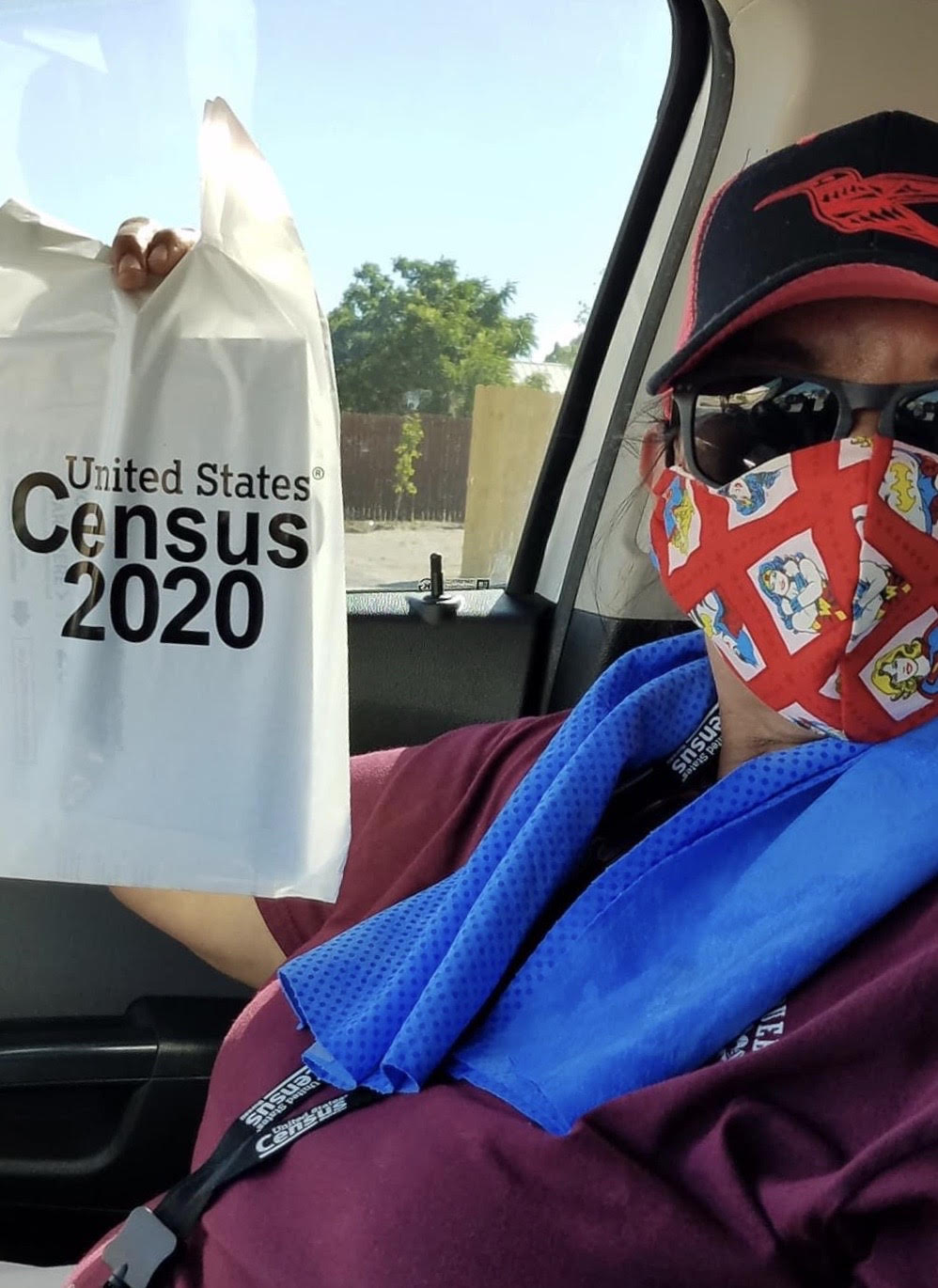
- Details
- By Levi Rickert
Nearly six percent of Indigenous people living on reservations weren’t counted in the 2020 census, according to an analysis from the U.S. Census Bureau.
The Bureau on Thursday released results from two reports analyzing the accuracy of last year’s census counts.
American Indians and Alaska Natives living on reservations were the most undercounted of all population groups, followed by African Americans undercounted by close to three percent andd Hispanics or Latinos undercounted by five percent. Asians, on the otherhand, were overcounty by almost three percent.
Want more Native News? Get the free daily newsletter today.
Among all Americans, the 2020 Census miscounted roughly 782,000 of the country’s 331 million individuals, according to the Bureau’s analysis.
For American Indians and Alaska Natives living on reservations, the 2020 Census was worse than the almost five percent undercount that the Census Bureau reported ten years earlier.
While the results from the two counts—a decade apart—are statistically the same, the National Congress of American Indians (NCAI) calls the undercounts unacceptable because undercounting American Indians and Alaska Natives (AI/Ans) will result in millions of dollars in lost revenue.
“These results confirm our worst fears that the 2020 Census results would significantly undercount AI/ANs on reservation lands as it did in 2010,” NCAI President Fawn Sharp of the National Congress of American Indians said in a statement on Thursday. “Every undercounted household and individual in our communities means lost funding and resources that are desperately needed to address the significant disparities we face.”
During the 2020 Census, that was slowed down because of the COVID-19 pandemic, which caused the Census Bureau to stop sending census counters door-to-door in remote locations.
At one point, the Commerce Department— where the Census Bureau is housed—extended the counting period until Oct. 31, 2022 because of the pandemic, but then reversed the decision to end the counting period a month earlier.
Several organizations, including the National Urban League, filed a federal lawsuit to have the Commerce Department stick with the extended deadline. The Navajo Nation and Gila River Indian Community joined the lawsuit.
“The Navajo Nation has worked proactively with the Census Bureau since last year to ensure that the Navajo Nation has a high response rate for the 2020 Census,” Navajo Nation President Jonathan Nez said in a statement on Sept. 3, 2020. “Unfortunately, the federal government has undermined the time, planning, and resources that the Navajo Nation had dedicated to the Census count by shortening the time period by an entire month and now we are seeking a resolution through the courts.
Unfortunately, the federal judge ruled in the Commerce Department’s favor.
Even before the outset of the pandemic, NCAI wrote several letters and provided numerous comments to the U.S. Census Bureau with concerns about the possibility of undercounts of AI/ANs in the 2020 Census due to a variety of factors, including the COVID-19 pandemic shutdowns, delays in census operations, the lack of broadband on tribal lands for the new internet response option, and the adverse impact of new privacy measures.
Sharp on Thursday also called for an immediate tribal consultation on these results and potential efforts to address and adjust for these undercounts in future census data products
“While these letters were an attempt to motivate the U.S. Census Bureau to meet its federal responsibility for tribal Nations and work to reduce these undercounts, the results today now confirm that our AI/AN reservation communities may be left behind in funding formulas and funding decisions,” she wrote in NCAI’s statement.
“Federal agencies must consult on a government-to-government basis with AI/AN Tribal Nations to find solutions to ensure that these 2020 Census undercounts do not lead to continued underfunding of our communities,” said President Sharp. “Despite the challenges of the 2020 Census, AI/ANs living on reservation lands deserve to be counted and to receive their fair share of federal resources as a part of the federal trust responsibility.”
Jenna Kunze contributed to this article from New York.
More Stories Like This
Native News Weekly (August 25, 2024): D.C. BriefsScope Narrowed, Report Withheld: Questions Mount Over Michigan Boarding School Study
Zuni Youth Enrichment Project Announces Family Engagement Night and Spring Break Youth Programming
Next on Native Bidaské: Leonard Peltier Reflects on His First Year After Prison
Deb Haaland Rolls Out Affordability Agenda in Albuquerque
Help us defend tribal sovereignty.
At Native News Online, our mission is rooted in telling the stories that strengthen sovereignty and uplift Indigenous voices — not just at year’s end, but every single day.
Because of your generosity last year, we were able to keep our reporters on the ground in tribal communities, at national gatherings and in the halls of Congress — covering the issues that matter most to Indian Country: sovereignty, culture, education, health and economic opportunity.
That support sustained us through a tough year in 2025. Now, as we look to the year ahead, we need your help right now to ensure warrior journalism remains strong — reporting that defends tribal sovereignty, amplifies Native truth, and holds power accountable.
 The stakes couldn't be higher. Your support keeps Native voices heard, Native stories told and Native sovereignty defended.
The stakes couldn't be higher. Your support keeps Native voices heard, Native stories told and Native sovereignty defended.
Stand with Warrior Journalism today.
Levi Rickert (Potawatomi), Editor & Publisher

